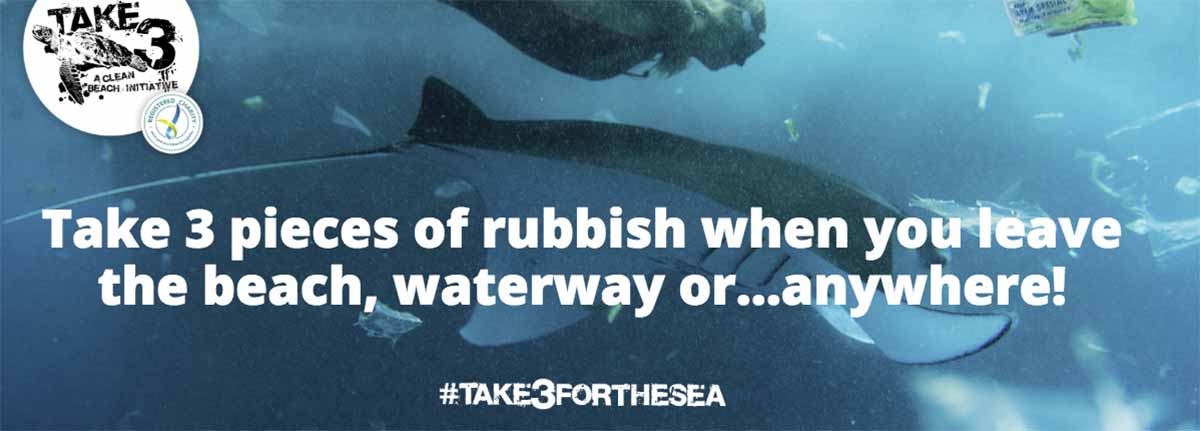Looking for ways to reduce your waste? We've broken down some simple things you can do to play an active part in preserving our planet.


Reusable Bags - Continuing on from our Ban on Plastic Bags post, it is estimated that on average, a person uses a plastic bag for only 12 minutes. Once that 12 minute role is over, it then takes over 1,000 years to decompose meaning every bit of plastic ever created exists in some form today. Eliminating plastic bag usage is an easy and convenient swap that anyone can make. Our top picks are the Onya Shopping Tote Bags made from recycled plastic bottles; when folded down, they are smaller than your smartphone and a fraction of the weight. With our major retailers enforcing the ban on single-use plastic from July 1, it’s never been a better time to release the grip on the ever convenient plastic bag and opt for a reusable one that will help both with the groceries and the planet.
A Zero Waste report prepared for the South Australian Government in 2007, estimated that if every Australian household switched to green bags, 2,200 garbage trucks would be diverted from landfill annually, 42,000 tonnes of greenhouse gases could be abated, and 50,000 litres of water saved.
Waste Bags - Adjusting to life post single-use bags can take some time and effort. However there are alternative solutions available making the transition a little less daunting and easier on the bank. One question we've been asked is what do you use as a waste bag, now plastic bags are banned. It may seem bizarre at first, however, a plastic bin liner isn’t really necessary at all. We’ve listed below a few alternatives to assist with the switch from the convenient go-to plastic bag:
- Jon Dee, managing director of environmental lobby group Do Something and founder of the National Plastic Bag Campaign advocates for rubbish to be put straight into bins without liners. The bins can be easily washed every few weeks to prevent the build-up of mould or grime.
- To eliminate the ‘smelly’ rubbish, simply wrap them up in newspaper and store them in the freezer until ‘Bin Night’.
- Use a composter for food scrap waste and opt for recyclable packaging when shopping.
- If the idea of not using a liner is a “no-no”, kitchen and or bathroom bins can be lined with newspapers instead of plastic.
- For pet owners, BioBag have recently released 100% compostable dog waste bags that are lightweight yet durable and come in packs of 50.
Hydrate with reusable water bottles - Another simple and convenient swap that can also save you money in the long-run, are reusable water bottles such as the Honua Stainless Steel Water Bottle. They are super lightweight, hard-wearing and easy to fill-up at home or on the move at water fountains. This eliminate the need to spend hundreds of dollars every year when buying single plastic bottles at lunch or cases from the supermarket.
Ditch straws and invest in reusable cutlery– When reviewing our reliance on plastic, plastic straws and plastic cutlery are two major players adding to the global waste problem. Just think, you’ve just sat down at a busy eatery at lunch and lo and behold they forgot to give you cutlery. Instead of having to ditch your seat and pay 50 cents for a plastic fork, you simply reach into your bag and pull out your own set. Simple and stress free. It may seem like a chore at first to carry around reusable utensils but with the Green + Kind lightweight cutlery set in a convenient cotton pouch, you’ll be wondering why you didn’t make the simple swap sooner. If you’re hosting a party or heading on out for a picnic with the family, why not swap your plastic plates and cups for EcoSoulLife’s cornstarch biodegradable dining set. Cornstarch is a compostable and affordable solution to paper, plastic and styrofoam. Once buried in the ground, these products will biodegrade back into the earth within 3-12 months.
Use a compostable toothbrush - In Australia alone we dispose of over 30 million plastic toothbrushes which head straight into landfills, choking our planet and harming our marine life. Brush your teeth sustainably with these bamboo toothbrushes from Green + Kind. The brand proudly sponsor Sea Shepherd to help with marine conservation and 50c from each toothbrush sale goes to Sea Shepherd Australia.




Look into composting - Composting isn’t solely for those with large gardens and outdoor living spaces. There are many brands on the market offering convenient composting solutions to maximise your zero-waste lifestyle. It has been reported that 16% of all methane emissions are from foods that can’t decompose in landfills. BioBag’s Food Bin is the perfect solution for composting items such as fruit and vegetable leftovers, coffee grounds and tea bags.
Contribute to a social cause - We’re surrounded by an undeniably beautiful coastline, however the reality is that plastic pollution is not only an increasing eyesore, it is devastating our oceans and harming our wildlife. Take 3 is an Australian not-for-profit organisation committed to reducing plastic pollution. Their message is simple: Take 3 pieces of rubbish with you when you leave the beach, waterway… or anywhere special, and you’ve made a difference. Unless we act, by 2050 there will be more plastic in the ocean than fish (by weight).

